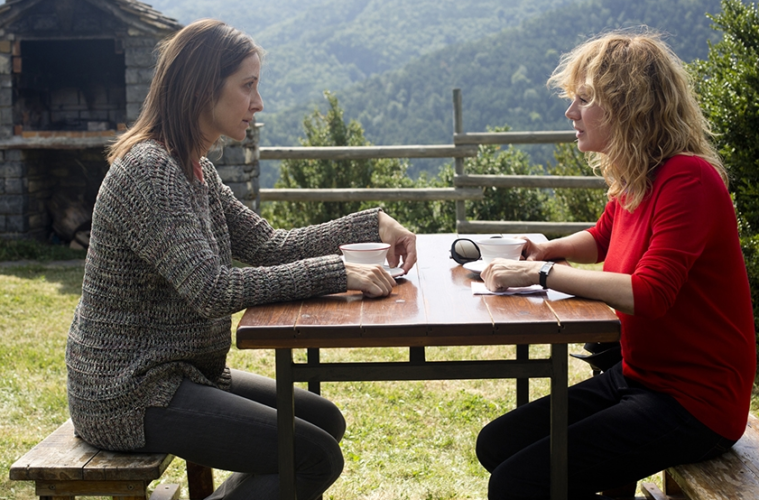
Dailies is a round-up of essential film writing, news bits, videos, and other highlights from across the Internet. If you’d like to submit a piece for consideration, get in touch with us in the comments below or on Twitter at @TheFilmStage.
Pedro Almodóvar explains why he changed the title of his next film from Silencio to Julieta (via THR), and see a new look above:
When we began with preproduction I found out that Martin Scorsese was going to shoot a film with the same title, but I didn’t mind because I thought that I would use the Spanish title, which sounds much different, in the markets. Scorcese and I have finished shooting our respective films and we know that we will coincide in theaters around the world next year around the same time. Additionally, the novel the film is based on by Shusaku Endo will be rereleased. I think it’s too many silences at the same time and I prefer to avoid future errors.
Speaking of Martin Scorsese, he discusses the fragility of film:
Queen of Earth star Kentucker Audley has launched a Kickstarter for his feature Sylvio.
Terrence Rafferty on Criterion‘s recent essential release of The Apu Trilogy:
Our first look at Apu, the young protagonist of Satyajit Ray’s Pather Panchali (1955), is a close-up of his eye. He’s a little boy, but it’s a very large eye that emerges from beneath the rough blanket he’s been wrapped in—a big, intelligent, and terribly innocent eye that will, in the course of this film and two more, Aparajito (1956) and Apur Sansar (also known as The World of Apu, 1959), see a lot of life and a lot of death, almost (but not quite) too much to bear. Apu, we come to understand, is by nature an observer of the world around him, which in Pather Panchali consists entirely of a tiny, remote rural village in West Bengal in the 1920s. His family is small: his father, Harihar Ray (Kanu Banerjee), often absent, is an itinerant Hindu priest and a would-be writer; his older sister, Durga (Shampa “Runki” Banerjee, later Uma Das Gupta), pilfers and yearns; an ancient “auntie,” Indir Thakrun (Chunibala Devi), comes and goes, singing songs as she waits to die; his mother, Sarbajaya (the extraordinary Karuna Banerjee), bustles around in a state of constant anxiety, mostly about money. (The Rays are desperately poor: the modest house that Harihar calls the “ancestral home” is crumbling around them.) There are animals, too, of course, and a few scattered neighbors; sometimes a sweets seller wanders by, and once in a blue moon a troupe of traveling actors visits the village to put on a show. For a curious boy like Apu (Subir Banerjee), this doesn’t seem much in the way of stimulation—and perhaps initially not for a movie audience either, accustomed as we are (and were even sixty years ago) to wider vistas than these. But to a child’s eye, everything is marvelous, and by the end of Pather Panchali, Ray has taught us to see the world with eyes like that.
Watch a video on the chronological timeline of Paul Thomas Anderson‘s films:

